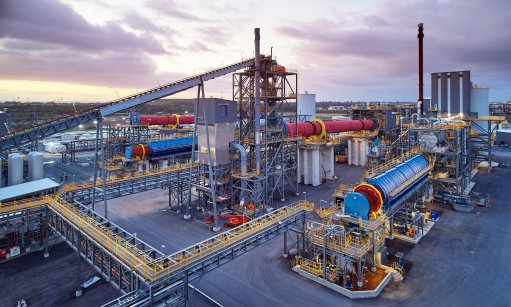
PERTH (miningweekly.com) – Calls for the Australian government to consider a reservation policy on critical mineral feedstock to allow for the development of a downstream industry, are unlikely to be heeded.
Mineral sands producer Iluka Resources boss Tom O’Leary earlier this year said the government would need to consider an option akin to a domestic reservation policy in order to capture the full value of the critical minerals industry.
“That sort of policy might be implemented by the federal government saying that, yes, you can develop a rare-earths deposit ... 75% of it needs to be reserved for value addition in Australia and you can export the remaining 25%,” he was quoted by the Financial Review.
Speaking on the sidelines of Paydirt’s Africa Downunder conference, federal Resources Minister Madeleine King noted that while there would be benefits to a reservation policy for critical minerals, other options would likely offer better value.
“At the moment, we have an open market. We don’t have a secondary market as much on the processing side of things. So, it is really imperative that we drive that to be built, and that is happening, with lithium being a good example. There will be a lot of lithium hydroxide production in the country in the next couple of years as all the plants come online, and there is feedstock enough to support those.
“Iluka makes a fair point that there would need to be security of feedstock if they are going to invest a lot of money in a processing plant, but there are other means of encouraging those feedstocks to remain in Australia, rather than using a pretty blunt instrument like a reservation policy.”
King said the government would consider a number of options to encourage the downstream processing industry, including tax incentives to encourage investments.
“We want to compete in an area that we're not competing in right now. Rather than sending a lot of the raw materials, critical minerals, off to be processed somewhere else, we reckon we can do it too. So, it's about driving that competition more than anything else,” she added.